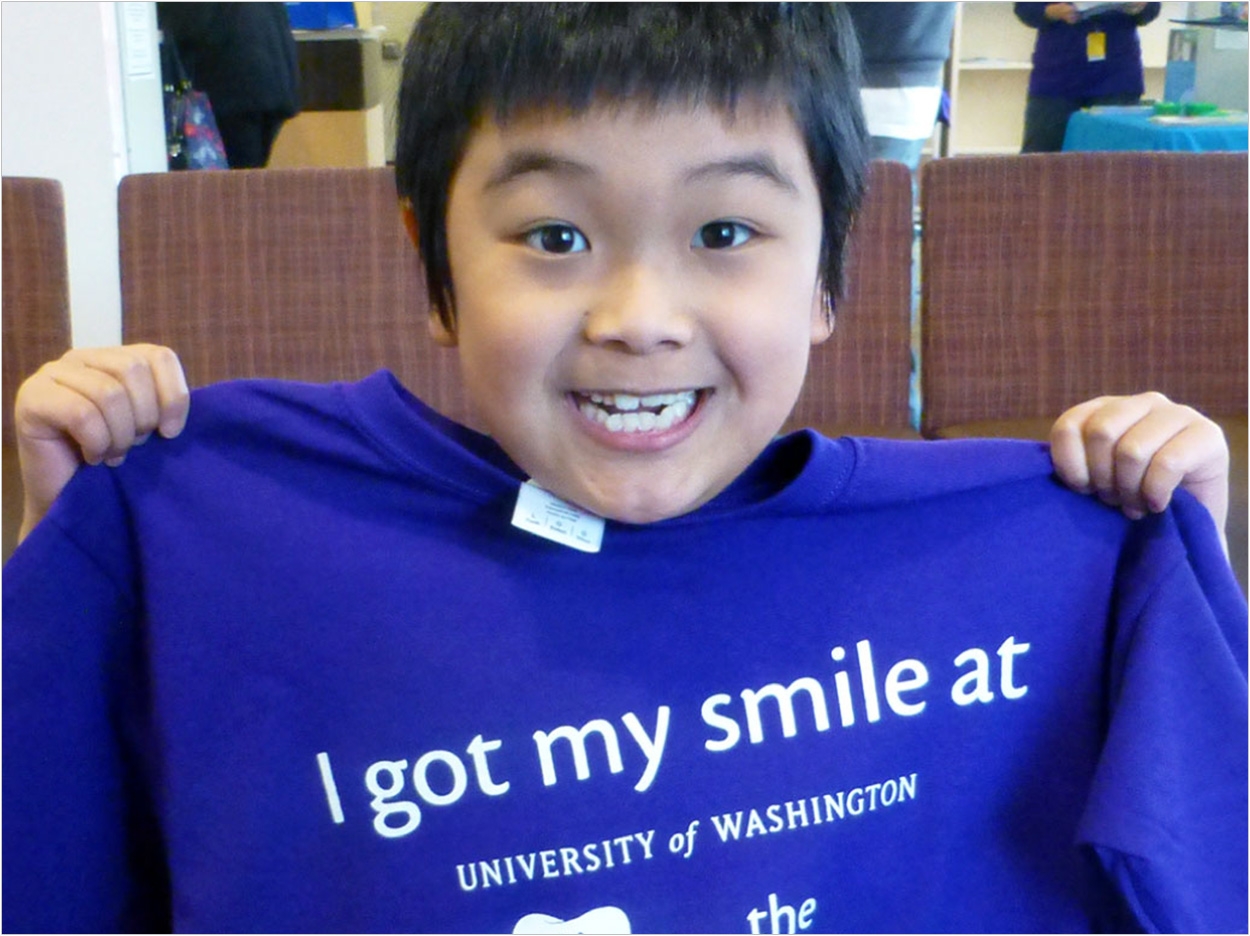
A University of Washington (UW) Health Sciences team led by the School of Dentistry is launching an interprofessional training program to improve access to dental care for children through the age of 5. Early Childhood Oral Health Training, or EchoTrain, will provide pediatric dental training directly to UW dental students, Shoreline Community College dental hygiene students, and students and trainees of the UW School of Medicine.
Collaborative training also is planned with faculty, students, and trainees from UW Medicine as well as the university’s schools of public health and pharmacy. The nonprofit Acora Foundation and the dental hygiene program at Eastern Washington University (EWU) will play a role in the program as well. Training will begin in March for pre-doctoral dental students, with the rest of the training beginning in July.
Funded by a $1.5 million, five-year Health Resources and Services Administration (HRSA) grant, EchoTrain also will develop learning modules that can be used at other institutions and for workforce training in continuing education programs. Instructional videos also will be created at UW for possible nationwide distribution to dental and dental hygiene students.
“It really does take a village, and I feel that we’ve put a great team together,” said Amy Kim, DDS, clinical associate professor in the Department of Pediatric Dentistry, principal investigator for the HRSA grant, associate director of the Regional Initiatives in Dental Education (RIDE) program, and co-director of UW’s Center for Health Sciences Interprofessional Education Research and Practice.
According to the team, there aren’t enough pediatric dentists to serve the needs of Washington’s children. Also, these dentists aren’t easily accessible where they’re most needed, especially in rural and other underserved areas. General dentists are more accessible, but not all of them are comfortable treating young children. Also, pediatric dentists undergo additional extensive training in treating medically complex children, while general dentists do not.
“We’ll be teaching dental students what hygienists can do, including restorative and preventive care, and how to work effectively with them,” said Marilyn Rothen, RDH, MS, clinical assistant professor of oral health sciences and co-investigator on the grant.
Other than RIDE students, who take classes alongside dental hygiene students at EWU, many students aren’t fully aware of what hygienists do until they enter practice, Rothen said. And while UW dental students already study and practice pediatric dentistry, EchoTrain will enhance their training through new videos, learning modules, and units on cultural competence, interprofessional team care, and childhood obesity prevention.
Additional community-based pediatric clinical rotations are planned as well. Shoreline dental hygiene students already serve rotations at School of Dentistry clinics, but they don’t usually have an opportunity to work with children during their training. EchoTrain will fill in that gap. The team notes that if providers don’t treat children during their training, they’re much less likely to do so after entering practice.
“It’s important to teach dental students to figure out what’s doable without general anesthesia,” said Frank Roberts, DDS, PhD, associate professor of periodontics and director of the RIDE program, who also said that EchoTrain will teach students about patient and caregiver management as well.
Kim will collaborate with outreach programs at the School of Dentistry to explore providing care for children at sites such as Mary’s Place, a Seattle shelter for homeless women, children, and families. Dental faculty and students already furnish care to clients there and at similar sites with a current focus on adults.
Also, Michelle Averill, PhD, RD, of the UW School of Public Health is developing learning modules to show students how to present nutrition information to children and families. Students will learn counseling skills and how to take body mass index readings, and they’ll learn how to do focused interventions, Kim said.
School of Dentistry faculty members Donald Chi, DDS, PhD, and Douglass Jackson, DMD, MS, PhD, will provide material on cultural competence and social determinants of health, which will help students better recognize when children are at heightened risk for poor oral health, Kim said. EchoTrain will feature extensive evaluation and feedback throughout training as well.
Related Articles
Syrian Refugees Get Free Dental Screenings at University of Washington
The United States Dominates ARWU’s Top Dental Schools for 2017
Dental Therapy Proves Effective in Improving Oral Health in Alaska












